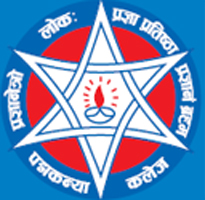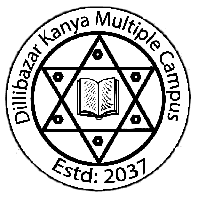Overview
MA in Nepali at Tri-Chandra Campus, Ghantaghar, Kathmandu (affiliated with TU)
The Master of Arts in Nepali at Tri-Chandra Campus, affiliated with Tribhuvan University (TU), is an advanced academic program that explores Nepal's rich linguistic, literary, and cultural heritage. The program provides a deep understanding of Nepali literature and language and their evolution, fostering critical analysis and creative thinking. Designed for students passionate about Nepali studies, this course combines graduates with the knowledge and skills required for careers in academia, research, cultural preservation, and more.
Program Duration
The MA in Nepali program is a two-year postgraduate course divided into four semesters. Each semester includes core and elective subjects, focusing on research, practical application, and critical analysis. The program culminates in a dissertation or research project, allowing students to specialize in their interests.
Eligibility Criteria
To be eligible for admission to the MA in Nepali program at Tri-Chandra Campus, applicants must meet the following requirements:
-
A bachelor's degree in Nepali or a related discipline from a recognized university is required.
-
Obtained minimum CGPA of 2.0 or second division in the undergraduate program.
-
Candidates from other disciplines may need to complete prerequisite courses determined by the campus.
Admission Process
-
Application Submission: Submit the application form, available online or at the campus admission office.
-
Entrance Examination: You must appear for the entrance test conducted by Tribhuvan University, which assesses your knowledge of Nepali literature and language.
-
Merit-Based Selection: Admission is granted based on performance in the entrance exam and academic records.
-
Document Verification: Submit required documents, including academic transcripts, citizenship proof, and recommendation letters.
-
Enrollment: Confirm admission by paying the necessary fees and completing the registration process.
Course Outline
The curriculum is designed to provide an in-depth understanding of Nepali language and literature. Below is a detailed breakdown of the course structure:
Year 1, Semester 1:
-
Modern Nepali Literature
-
History of Nepali Language
-
Research Methodology
-
Practical: Literary Analysis
Year 1, Semester 2:
-
Classical Nepali Literature
-
Linguistics and Grammar
-
Comparative Literature Studies
-
Practical: Textual Criticism
Year 2, Semester 3:
-
Literary Theories
-
Cultural Studies and Nepali Society
-
Elective: Folklore Studies or Translation Studies
-
Seminar: Current Trends in Nepali Literature
Year 2, Semester 4:
-
Dissertation/Research Project
-
Advanced Grammar and Syntax
-
Elective: Creative Writing or Digital Literature
-
Internship/Fieldwork
Subjects Offered
-
Modern Nepali Literature
-
Classical Nepali Literature
-
History of Nepali Language
-
Linguistics and Grammar
-
Comparative Literature Studies
-
Literary Theories
-
Folklore Studies
-
Translation Studies
-
Cultural Studies
-
Creative Writing
-
Digital Literature
Program Objectives
-
To provide a comprehensive understanding of Nepali literature, language, and culture.
-
To develop advanced skills in critical analysis, interpretation, and creative expression.
-
To prepare students for careers in teaching, research, and cultural preservation.
-
To promote the preservation and promotion of Nepali heritage through academic exploration.
-
To equip students with research methodologies and practical literary and linguistic studies tools.
Teaching Methodology
The program combines traditional and modern teaching methodologies, including lectures, group discussions, and seminars. Students engage in hands-on learning through literary analysis, research projects, and fieldwork. Faculty members utilize interactive tools and resources to enhance understanding and encourage critical thinking. Workshops and guest lectures by renowned scholars further enrich the learning experience.
Learning Outcomes
Graduates of the MA in Nepali program will:
-
Demonstrate a deep understanding of Nepali literature, language, and culture.
-
Conduct independent research using advanced methodologies.
-
Analyze literary and linguistic texts with a critical perspective.
-
Apply knowledge to address cultural and linguistic challenges in Nepal.
-
Develop effective communication and teaching skills.
-
Contribute to the preservation and enhancement of Nepali heritage.
Future Scope
The MA in Nepali program provides a strong foundation for further studies, such as a Ph.D. in Nepali or related fields. Graduates can specialize in linguistics, literary theory, or cultural studies. The program prepares students to contribute to academic, cultural, and literary advancements at national and international levels.
Career Prospects
Graduates of the MA in Nepali program can pursue careers in:
-
Academic and Research Institutions
-
Journalism and Media
-
Translation and Interpretation
-
Cultural and Heritage Preservation
-
Publishing and Editing
-
Government and Policy-Making Bodies
-
Creative Writing and Content Creation
Scholarship Opportunities
Tri-Chandra Campus offers scholarships for academically outstanding and economically disadvantaged students. Additional scholarships are available for students from marginalized communities and those meeting government or institutional criteria. Candidates are encouraged to make inquiries during the admission process.
Fee Structure
Tribhuvan University determines the tuition fees for the MA in Nepali program, which may be subject to periodic revisions. Detailed fee structures are available at the campus administration office.
Extracurricular and Co-Curricular Activities
Students participate in literary clubs, cultural events, and academic conferences. These initiatives enhance their understanding of Nepali literature and culture while fostering teamwork, creativity, and leadership skills.
Real-World Application
The program emphasizes practical applications through internships, translation projects, and community engagement. Students analyze real-world linguistic and cultural issues, applying their knowledge to develop solutions and contribute to societal development.
Sustainability and Social Impact
The curriculum integrates sustainability by exploring cultural preservation and language revitalization. Students are trained to promote social cohesion and cultural heritage through education and research, contributing to Nepal's sustainable development goals.
Skill Development
The program emphasizes developing critical skills such as literary analysis, research methodologies, and effective communication. Students also gain expertise in creative writing, translation, and digital tools, preparing them for diverse professional roles.
Global Perspective
Courses in comparative literature and cultural studies give students a global outlook. The program equips graduates to address international linguistic and literary challenges and fosters cross-cultural understanding and collaboration.
Facilities and Support
Tri-Chandra Campus provides well-equipped classrooms, a comprehensive library with access to Nepali literary archives, and modern research tools. Students also benefit from academic counseling, mentorship programs, and career guidance services, which ensure a supportive learning environment.
Why Choose an MA in Nepali?
This program combines rigorous academics with practical applications, preparing students to tackle complex linguistic and cultural challenges. It offers interdisciplinary insights, hands-on experience, and opportunities for impactful careers in Nepali studies. The focus on research and cultural preservation makes it a standout choice for aspiring scholars and professionals.
Is the MA in Nepali Right for You?
This program is an excellent fit if you are passionate about Nepali literature, language, and culture. It provides a comprehensive education that combines theory, research, and practical experience, catering to diverse academic and professional aspirations.
What is the future of MA in Nepali?
The demand for Nepali language and literature experts is growing as cultural preservation becomes a national priority. Graduates will play a crucial role in shaping Nepal's literary and cultural landscape, contributing to academic and professional advancements in the field.
How to Improve Your Study of Nepali Education
To excel in Nepali studies, actively engage with literary texts, research articles, and cultural projects. Collaborate with peers and mentors to deepen your understanding. Attend literary events, workshops, and seminars to stay updated on trends and developments. Practice critical analysis and creative writing to enhance your skills.
Conclusion
The MA in Nepali program at Tri-Chandra Campus offers a holistic education in understanding and addressing linguistic and cultural challenges. By integrating rigorous academics with practical applications, the program prepares graduates for impactful careers in academia, research, and cultural preservation. Whether pursuing further studies or professional opportunities, this program equips students with the knowledge and skills to contribute meaningfully to Nepal's literary and cultural heritage.
Contact Tri Chandra Multiple Campus's administrative office for detailed information on the MA in Nepali course, including fees, scholarships, facilities, counseling, eligibility criteria, etc.
















